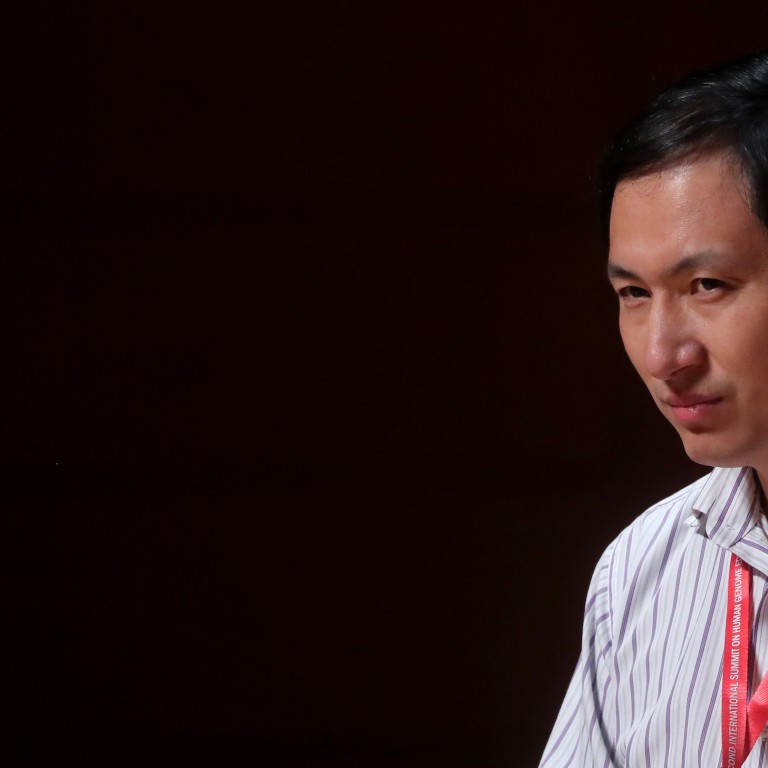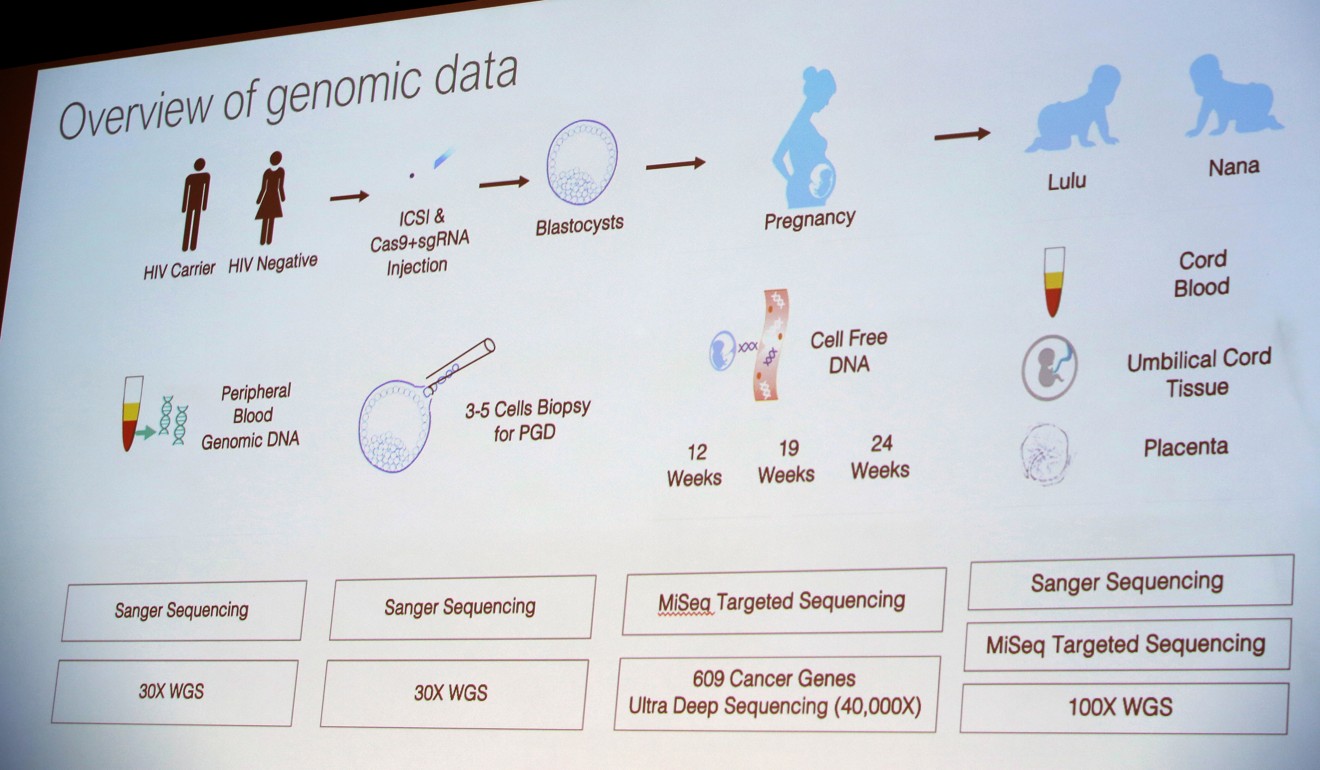
Chinese education ministry calls on universities and hospitals for ‘low-key’ review of gene-editing projects
- Hospitals are focus of inquiry after scientist claimed to have created babies whose genes were ‘edited’ to remove HIV inherited from their father
China’s Ministry of Education is asking universities and their affiliated hospitals for a “low-key” review of their gene research programmes after a Chinese scientist claimed to have created the world’s first gene-edited babies.
He Jiankui, a former researcher at Southern University of Science and Technology in Shenzhen, was nicknamed “China’s Frankenstein” after he claimed that he and his team had modified the embryos of twin girls to switch off an HIV-related gene inherited from their father.
The government was caught off guard by He’s announcement at the end of November. An official in charge of medical ethics evaluation at the National Health Commission told the South China Morning Post that they were unaware of his work, while his university said it had no knowledge of the research, adding that it “severely violated academic ethics and code of conduct”.
The Ministry of Science and Technology launched an investigation and ordered He not to undertake any further research. Authorities in Shenzhen are considering drafting guidelines for the ethical review of biomedical research involving humans.
According to the document obtained by the Post, the education ministry asked all the Chinese universities and institutes of higher learning to check their gene-editing research projects from 2013 until today. The focus of this inspection will be work at affiliated hospitals and projects that involve international cooperation.
The ministry asked the universities to submit a complete self-inspection report by the end of the year, including information about ethics, detailed information of their gene-editing projects and their ethics committees’ approval process.
While many universities carried the notice from the ministry on their official websites, the notice could not be found on the website of the Southern University of Science and Technology.
The ministry reminded the universities to ensure inspections were low key but did not offer additional comment on the inspection programme when asked.
He was listed among others as “Ten people who mattered this year” in science by Nature in December. The magazine called him “rogue” and said he will “leave a complicated legacy” as “scientists worry that the field of gene-editing might now struggle to secure funding, regulatory approval or support from the public”.

While controversy took He to Nature’s top 10, he was dropped by the China Association of Science and Technology as a candidate for China’s Youth Science and Technology Award in November.
China’s national public clinical trial registry decided to reject his application for registration as he “failed to provide the original data on the promise date and did not answer the two inquiries by the centre” on November 30.

